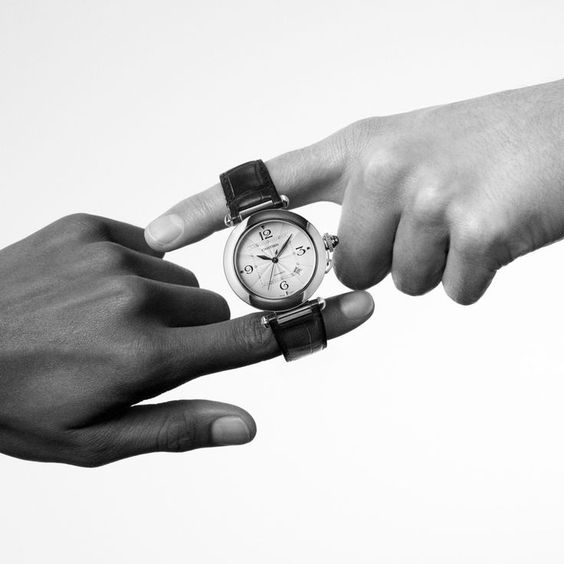Luxury Watchmaking: Sustainable Practices
In recent years, the luxury watchmaking industry, traditionally linked to opulence, is undergonehttps://en.wikipedia.org/wiki/Watchmaker a noteworthy shift towards sustainability. With heightened consumer awareness regarding environmental impact, luxury watch brands are actively incorporating sustainable practices to align with market expectations.
These initiatives encompass responsible material sourcing and the integration of energy-efficient manufacturing processes, illustrating the industry’s dedication to ethical and eco-friendly production.
This blog will scrutinize the sustainable measures embraced by luxury watchmakers, shedding light on how these efforts are not only meeting consumer demands but also reshaping the industry’s trajectory toward a more environmentally conscious future.
The importance of sustainable practices in the luxury watchmaking industry
In the realm of luxury watchmaking, the adoption of sustainable practices holds significant importance, reflecting a growing commitment to ethical and eco-conscious principles. This shift is not merely a trend but a pivotal transformation shaping the industry’s landscape. Here’s a breakdown of the key facets underscoring the importance of sustainable practices:
- Environmental Responsibility:
- Luxury watchmakers are increasingly acknowledging their environmental impact, prompting a shift towards sustainable practices.
- Consumer Awareness:
- As consumers become more environmentally conscious, there is a rising demand for luxury brands to align with sustainable values.
- Ethical Material Sourcing:
- Sustainable practices involve responsibly sourcing materials, ensuring that the production chain adheres to ethical standards.
- Energy-Efficient Manufacturing:
- Luxury watch brands are investing in energy-efficient manufacturing processes to reduce their carbon footprint.
- Long-Term Industry Viability:
- Embracing sustainability is not just a contemporary choice; it ensures the long-term viability and relevance of the luxury watchmaking industry.
- Positive Brand Image:
- Adopting sustainable practices enhances a brand’s image, resonating positively with consumers who value environmental responsibility.
- Innovation and Collaboration:
- Sustainable practices drive innovation and foster collaborations within the industry, creating a collective effort towards a greener future.
- Reshaping Consumer Expectations:
- The incorporation of sustainability in luxury watchmaking is reshaping consumer expectations, making it a pivotal factor in purchasing decisions.
In essence, the importance of sustainable practices goes beyond environmental consciousness; it signifies a strategic move towards a more responsible, consumer-centric, and future-oriented luxury watchmaking industry.
Leading luxury watch brands embracing sustainability

In the ever-evolving landscape of luxury watchmaking, prominent brands are wholeheartedly embracing sustainability, marking a paradigm shift in the industry’s ethos. This transformative approach not only aligns with contemporary consumer values but also underscores a commitment to ethical and environmentally responsible practices. Several leading luxury watch brands are at the forefront of this movement, actively incorporating sustainability into various facets of their operations. Key aspects include:
- Responsible Material Sourcing:
- These brands meticulously source materials, ensuring ethical and sustainable origins for the components of their timepieces.
- Innovative Design and Craftsmanship:
- Embracing sustainability extends to the creative process, fostering innovation in design and craftsmanship techniques that minimize environmental impact.
- Energy-Efficient Manufacturing:
- Implementing energy-efficient manufacturing processes reduces the carbon footprint of the production chain.
- Collaborations for Change:
- Leading luxury watch brands engage in collaborations with environmental organizations, reflecting a collective commitment to broader sustainability goals.
- Consumer Education and Transparency:
- Brands are actively educating consumers about sustainable practices and enhancing transparency regarding their environmental initiatives.
This shift towards sustainability not only underscores a response to global environmental challenges but also positions these luxury watch brands as conscientious leaders in the industry. As they continue to prioritize ethical practices, these brands are not merely creating timepieces; they are shaping a more sustainable and responsible future for luxury watchmaking.
Sustainable materials and manufacturing processes in luxury watchmaking
In the realm of luxury watchmaking, a notable shift towards sustainability has emerged, focusing on the use of sustainable materials and eco-friendly manufacturing processes. Traditionally associated with opulence and precision, the industry is now recognizing the importance of minimizing its environmental footprint.
Sustainable materials play a pivotal role in this transformation. Instead of relying solely on traditional materials like precious metals, watchmakers are exploring alternatives such as recycled metals, responsibly sourced leather, and even innovative plant-based materials. This shift not only aligns with eco-conscious values but also contributes to the reduction of environmental impact.
Moreover, the adoption of sustainable manufacturing processes is reshaping the landscape of luxury watchmaking. From energy-efficient production facilities to minimized waste through recycling initiatives, manufacturers are embracing practices that prioritize environmental responsibility. These changes not only benefit the planet but also resonate with consumers increasingly seeking ethical and sustainable choices.
Transitioning to sustainable practices, however, requires a delicate balance to maintain the high standards expected in luxury watchmaking. The integration of modern technology and craftsmanship allows for the creation of timepieces that not only meet the rigorous standards of precision but also adhere to ethical and environmental considerations.
The incorporation of sustainable materials and manufacturing processes marks a positive evolution in luxury watchmaking. Embracing this shift not only reflects the industry’s commitment to environmental stewardship but also caters to a growing consumer base that values both exquisite craftsmanship and a conscientious approach to sustainability.
The impact of sustainable practices on brand reputation and customer loyalty

In the dynamic landscape of business, the incorporation of sustainable practices holds profound implications for brand reputation and customer loyalty. This transformative approach not only aligns with contemporary values but also fosters a lasting connection with consumers. The impact of sustainable practices extends across various dimensions, influencing how brands are perceived and the loyalty they command. Here’s a breakdown of the key facets illustrating this impact:
- Positive Brand Image:
- Embracing sustainability cultivates a positive image, portraying the brand as socially responsible and environmentally conscious.
- Consumer Trust:
- Sustainable practices build trust, assuring consumers that the brand is committed to ethical and responsible business operations.
- Long-Term Customer Relationships:
- The adoption of sustainability establishes a foundation for long-term relationships, as consumers appreciate brands that share their values.
- Market Differentiation:
- Brands incorporating sustainable practices stand out in the market, differentiating themselves from competitors and attracting conscious consumers.
- Enhanced Customer Loyalty:
- Sustainable practices create a sense of loyalty among consumers who prefer to support businesses aligned with their ethical principles.
- Word-of-Mouth Promotion:
- Satisfied customers become advocates, promoting the brand through positive word-of-mouth, amplifying its reputation.
- Competitive Advantage:
- Sustainability becomes a competitive advantage, influencing consumer choices in favor of brands committed to environmental and social responsibility.
- Adaptability to Changing Trends:
- Brands with sustainable practices demonstrate adaptability to evolving consumer preferences and emerging global trends.
As businesses navigate the evolving marketplace, the impact of sustainable practices on brand reputation and customer loyalty is not just a strategic choice; it’s a fundamental commitment to building enduring relationships and contributing positively to the world.
The future of sustainable luxury watchmaking
Sustainable practices are crucial for the future of luxury watchmaking. By implementing eco-friendly production methods, responsibly sourcing materials, and embracing circular economy principles, watchmakers can contribute to a more sustainable industry.
These practices not only benefit the environment but also enhance brand reputation and customer loyalty. By prioritizing sustainability, luxury watchmakers can shape the future of the industry and ensure a prosperous and ethical legacy.








